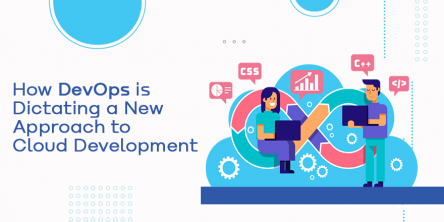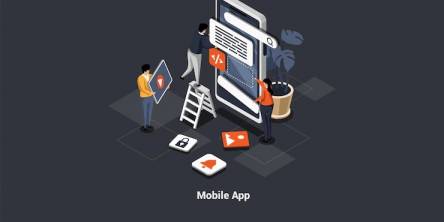Leverage Location-Based Technologies to Innovate Outdoor Marketing Campaigns

Over the past several years, the surge in mobile devices, followed by advancing technologies, has opened ways for location-based marketing. Therefore, sectors such as banks, food, retail, and real estate today use location-based applications and technology platforms to communicate with consumers in a more personalized way.
Such local marketing helps to improve the overall customer experience and increase business revenue. However, many online and offline businesses are still not leveraging this modern approach to meet next-gen customer needs. The time has come when they must understand the importance of location-based mobile marketing to stay at the top of the competition.
Though why location marketing is essential for businesses?
Location-based marketing, also known as geomarketing, has become a vital part of any successful marketing strategy. It helps businesses to market their products and services to people based on their device location. This service is much more than the necessary GPS-based technology as it helps to connect with consumers on a more personalized level.
For instance, when a customer searches for nearby eateries using the mobile device’s location, a marketing tactic like geo-conquesting can help a restaurant to send offers to that customer. As a result, the customers will get specific service at discounted rates, and the business strategy will be successful in increasing profits.
Effective location-based marketing helps to gain significant benefits over traditional marketing, such as:
- Target potential customers at specific locations, which improves the success ratio
- Attract new customers while enhancing the experience of existing customers
- Boost the in-app conversations to increase engagement
- Improve customer relationship with a more personalized conversation
- Increase business revenue
Top Technologies Used for Location-Based Marketing
- GPS: Global Positioning System is the most popular and widely used satellite-based navigation system. A GPS receiver detects the geolocation & time information of the device on which GPS is ON and helps the company to send special offers to the customer. For instance, when a customer visits at one of the chain cafes, he will receive an invitation on the GPS-enabled mobile application to approach newly opened partner restaurant and win a bonus. When the customer visits the place, he will receive a bonus coupon or discount offer through the app.
- Wi-Fi: Wi-Fi technology provides high-speed Internet connections through radio waves. This wireless networking technology is used for indoor data streaming and collections. It helps the retailers to notify the customer who enters a store to browse the online showcase of products with a high-speed connection. Based on the permissions the customer grants on his device, the user’s data are incorporated to assist in online activities and engage for various services.
- Beacon: Beacons are less expensive and easy to install compared to other mechanisms such as GPS, Wi-Fi, and more. A tag can be placed at any particular shelf in the store where retailers want to provide special offers and engage more customers. For instance, a beacon can detect the presence of customers standing for a few minutes in front of a bookshelf. It then can send a pre-order discount for coming-soon books in that genre on their mobile phones. However, the customers need to enable Bluetooth on their devices, and the stores need to put boards that would indicate customers to do so if they want to avail exclusive discounts.
- Li-Fi: Li-Fi is ideal to use where enormously high speed is needed, especially for short distances. When a mobile device comes in a range of the LED spotlight of the Li-Fi equipment, push notifications can be sent to the customer for offers and discounts. It is also possible to post short videos or 3D models of the items on display through Li-Fi technology.
- Geofencing: Geofencing is an incredibly valuable location-based marketing tool. It helps business owners to run marketing campaigns for customers within a specific sector of land. When a customer is present or enters in this location boundary, they receive accurate, targeted messages with offers for business services and products. This technology is widely used in open-air events and in-store marketing strategies.
Those, as mentioned above, as well as other emerging location-based technologies, have created more significant opportunities amidst challenges. Companies today must determine which location-based marketing strategy is ideal for their specific business.
Identify the needs of your potential customers, evaluate the effectiveness of your services, and then turn this data into interactive local marketing strategies across devices and platforms. As part of this, an experienced app development partner can help to build tailor-made geo-based apps according to the required functionalities.
Similar Articles
Mobiles and by extension, mobile apps are the basis for the modern mobile device and take it beyond a mere communication tool. In today’s world, information has to be available at our fingertips and people want mobile applications to do instantly what websites used to do before, give information and details instantly, anytime & anywhere
In the ever-evolving landscape of app development, embracing innovation is not just a choice but a necessity. Enter serverless architecture, a transformative paradigm reshaping how we approach app development.
EdTech developers leverage modern technology to create immersive and engaging learning apps. A successful product relies on solid technology, including front-end frameworks like React.js, offering efficient development and incorporating cutting-edge features like gamification and voice recognition for a standout user experience in the education industry
Internet of Things, or IoT, is a fast-growing concept that promises a transformation in how we live and work. It enables us to connect and control smart devices such as wearables, medical devices, sensors & more using mobile apps. IoT has impacted many aspects of our lives, and some of the most notable are home building, logistics, healthcare, and more.
Mobile app development has become an essential part of the digital ecosystem as mobile devices have become more prevalent than desktops or laptops. Regarding mobile app development, two popular approaches are Xamarin and native mobile app development.
With React Native becoming one of the preferred tools for developing mobile and web apps, there has been a growing focus on outsourcing software development based on this language
With over 6.3 billion estimated smartphone users worldwide, mobile app usage is growing exponentially. Studies have shown that Americans check their phones 262 times daily, once every 5.5 minutes! People check their phones at home, at work, on the street, while eating, in bed, and cars.
With the number of companies embracing digital solutions growing continuously, there is also an increasing demand for cloud services. Cloud development services help businesses (small or big) take advantage of digital transformation and to move their infrastructures to the cloud.
Businesses nowadays are fully enmeshed in the outstaffing and outsourcing trend. In order to boost production and take advantage of the expertise of specialized experts, it is safe to assume that modern professionals are more reliant on outsourcing









